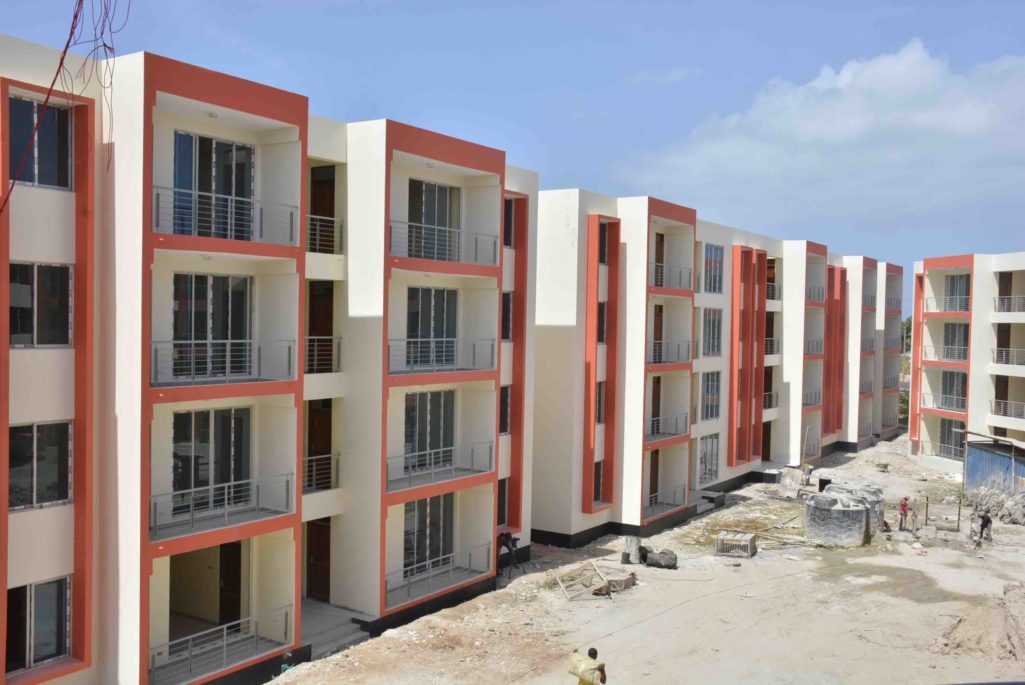E-commerce Giant Amazon Sets Up Shop In Cape Town. What This Means For African Retailers

There has been a chasm in the African digital space in the past two weeks as two tech giants move to establish their presence in the continent. Twitter CEO Jack Dorsey broke the internet when he announced that Twitter will be setting up its headquarters in Ghana. The news was well received and even sparked a sensational argument on why Ghana was chosen.

Within a week of that announcement, Amazon purchased a 15-hectare land worth 4 billion rands for its headquarters in Cape Town. While the prospect of having Amazon physically present in Africa is exciting, is this good or bad news for African businesses?
DA welcomes Amazon’s development of headquarters in Cape Town https://t.co/yUVhjT8aT6
— Dean Macpherson MP (@DeanMacpherson) April 21, 2021
Africa’s Untapped Digital Space
In just a few years, African countries have experienced a growing interest from international investors. With better policies, stable government, and a thriving economy, countries like Kenya, South Africa, and Ghana have gained international reputations. This explains why many companies are willing to “establish their presence” in the continent.
But, that’s not all. Africa has a huge digital market space. With over 364% increase in internet users per year, Africa’s digital awareness is growing at an exponential rate. Nevertheless, African countries continue to trail behind in terms of global internet usage. The internet penetration rate of Africa is below average according to reports. So, despite the growth we are seeing, there is still much room for growth.
Access to the internet across Africa is now 21%, up from 10% in 2010, says @ITU. #AfricaLive http://t.co/C5srNGqeTB pic.twitter.com/9P5fdtkiR1
— BBC News Africa (@BBCAfrica) May 26, 2015
Compared to its total population, the number of internet users in Africa is still relatively low, creating a vast pool of untapped digital resources. For instance, in 2020 alone, the number of internet users in the Republic of the Congo increased by 126%. Also, Nigeria, a country with over 200 million people, only has 126 million internet users (as of 2019), ranking it 6th in the world. This means more than 37% of its population still don’t have access to the internet. Therefore, more internet penetration means more markets for investors in Africa.
Amazon in Africa, What it Entails
About a year ago, the Amazon web services, AWS Africa (Cape Town) region, was launched in South Africa. Bringing the total number of AWS regions in the world to 23. AWS Africa was great news. It was the first AWS region in the continent and marked another milestone in Amazon’s increasing global digital footprint. Businesses and developers in South Africa could now enjoy the unparalleled technological support that Amazon Web Services had to offer. Currently, the retail giant has made a move to set up its headquarters in the same city.
New #AWSLaunches!
🚀AWS Ground Station is now available in the Africa (Cape Town) Region
🚀You now can restore Amazon DynamoDB table backups as new tables in the Africa (Cape Town), Asia Pacific (Hong Kong), Europe (Milan) & Middle East (Bahrain) Regionshttps://t.co/BVbQNl15Dl pic.twitter.com/tH4wOpBiqn— Amazon Web Services (@awscloud) September 23, 2020
Cape Town authorities gave the thumbs up for the commencement of the 4 billion Rand development project in River Club, a prime real estate in the city. Cape Town’s Mayor Dan Plato said,
“The planned mixed-use development will be a significant boost to the economy and the people of Cape Town in the aftermath of the national Covid-19 lockdown”.
The 15 hectares allocated for the development will include residential housing, offices, commercial complexes, and recreational facilities. Amazon headquarters will sit on 70,000 square meters of this land.
New Amazon Africa headquarters to be based at Cape Town's River Club development https://t.co/4cYJfSNHXo
— MyBroadband (@mybroadband) April 20, 2021
The Benefits
The Amazon headquarters in Cape Town definitely comes with loads of benefits for both the city and South Africa as a whole. According to the authorities, the construction phase of the project should create about 5,239 new jobs. While the total number of job opportunities from the project is estimated to be 19,000, in addition to the 20% floor space allocated to affordable housing.
In terms of online shopping, the presence of Amazon in Africa also means that consumers of retail goods in Africa will get to enjoy certain benefits peculiar to the e-commerce giant. This includes quick delivery, low shipping fares, great prices, and promos that are specific to the region.
There is also the added benefit of Amazon’s logistics that might make it easier for African businesses to go online and deliver their products and services.
Should African Retailers be Worried about Amazon?
While the presence of the e-commerce giant seems to be a blessing, it could deal a great blow to local retailers and physical stores. For example, popular retail stores in the US like Barnes & Noble, Office Depot, and Macy’s stores are at the mercy of Amazon. Likewise, indigenous e-commerce marketplaces, departmental stores, and businesses may suffer the same fate. Most African companies do not have the technology and business model to compete with Amazon.
This is the case in India, where the Confederation of All India Traders (CAIT) accused Amazon and Flipkart of destroying India’s retail sector with “their deep pockets and expansive lobby of legal experts“. CAIT goes ahead to claim that these companies have achieved control of the marketplace by exploiting loopholes in the policy which allows them to carry out actions like “predatory pricing, deep discounting, preferential treatment of sellers with capital dumping….to gain market share and make illegitimate financial gains“.
can't wait for Reliance 2 start ops n eat them 4 lunch. The dictatorial policies of @amazon won't work. They need 2 be kicked out of India just as China@JeffBezos mend ur ways if u want 2 do business in India
India doesn't need @amazon
Sad truth is @amazon needs India more https://t.co/7og0tnzSoj— apna Desh apna Ecom (@LaserMusic4u4) May 27, 2019
The group is now asking the government to “plug the loopholes” used by these companies and even requested that Amazon should be banned in India.
Conclusion
Twitter and Amazon may have just opened the proverbial flood gates in Africa. Consequently, other big firms will likely recognize the opportunities present in Africa’s digital marketplace and follow suit. The influx of these firms may seem good initially but we must also consider the long-term implications on indigenous startups. The Amazon Africa project is still in its developmental stages, therefore it is too early to draw conclusions. However, African leaders can read the writing on the wall and take steps to prevent a replay of the ongoing battles in other parts of the world. For now, let’s keep our hope alive while waiting to see which way the wind blows.







Responses